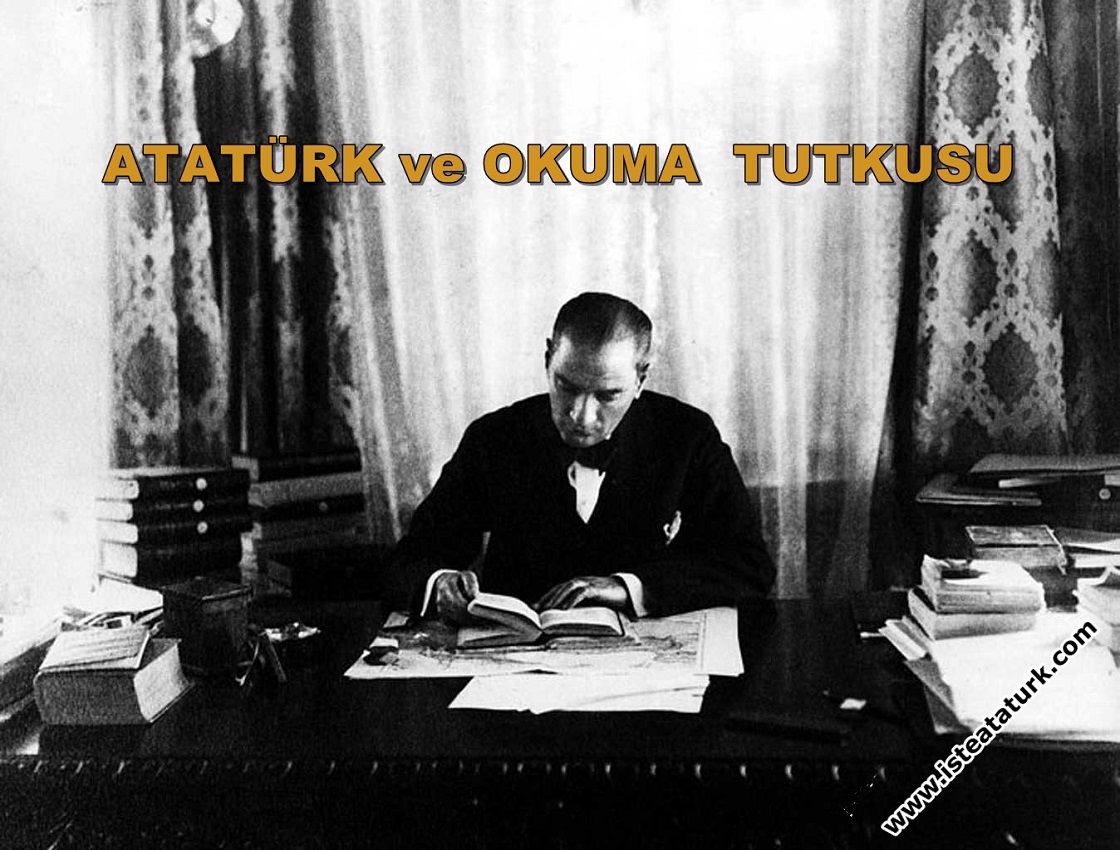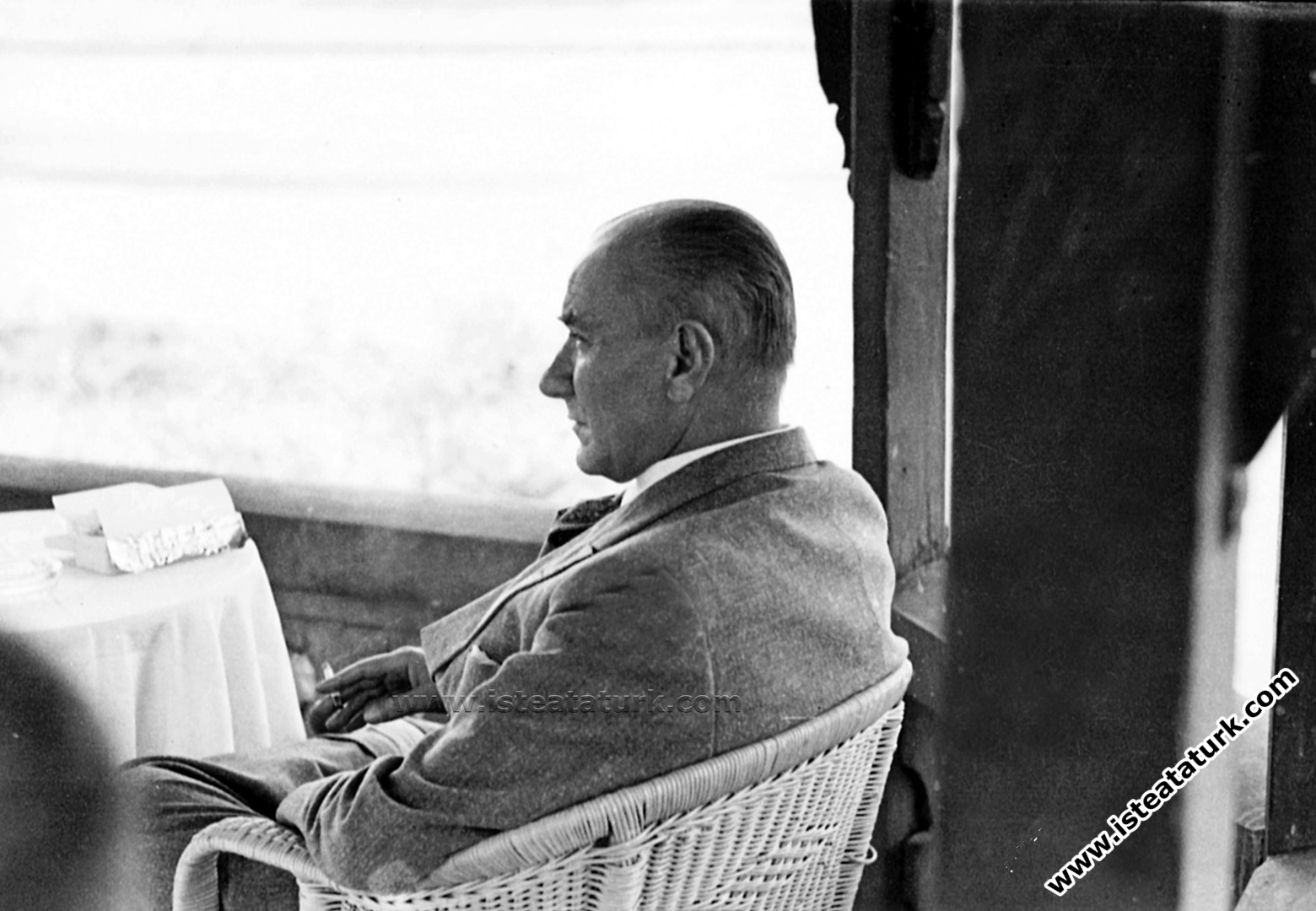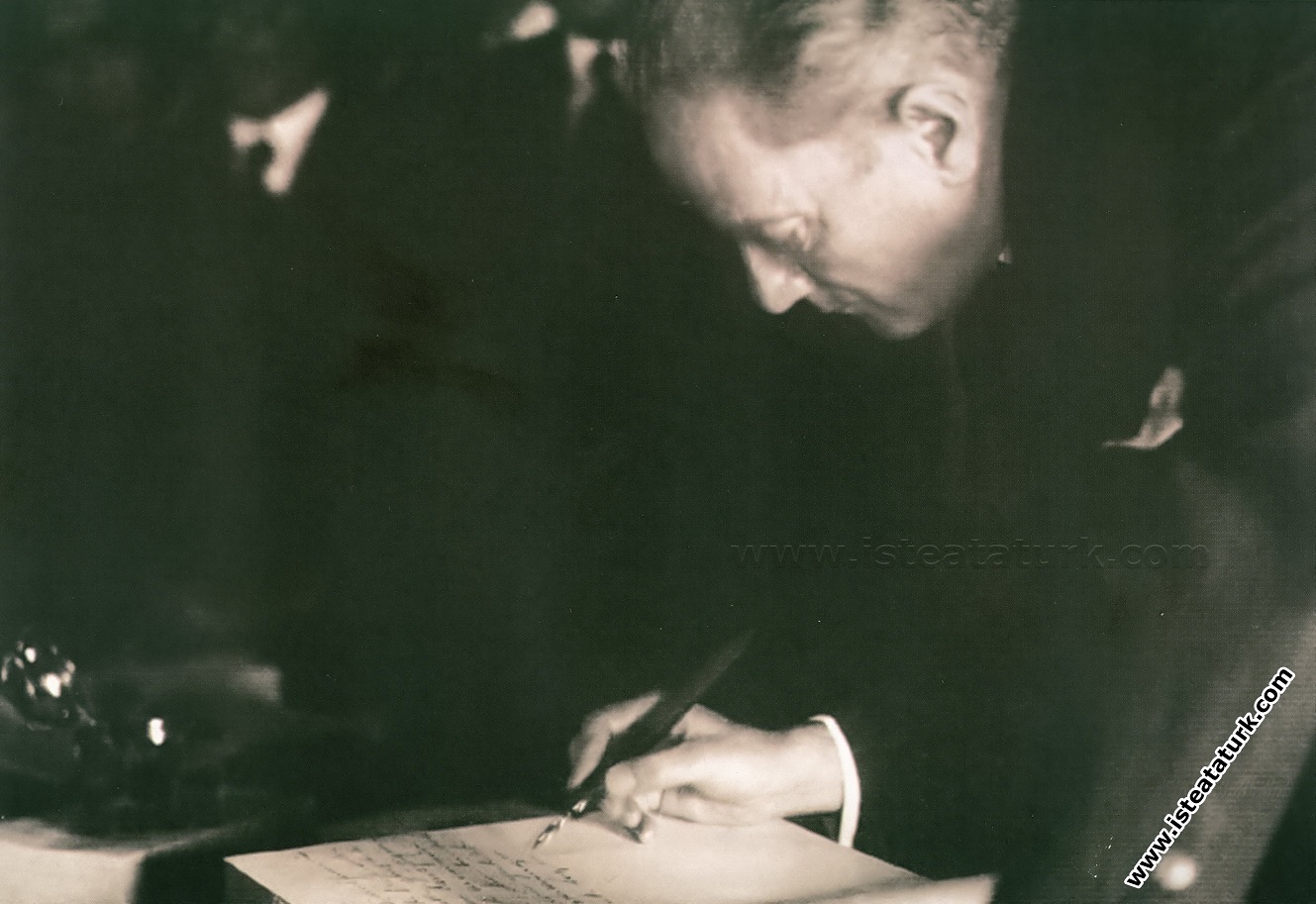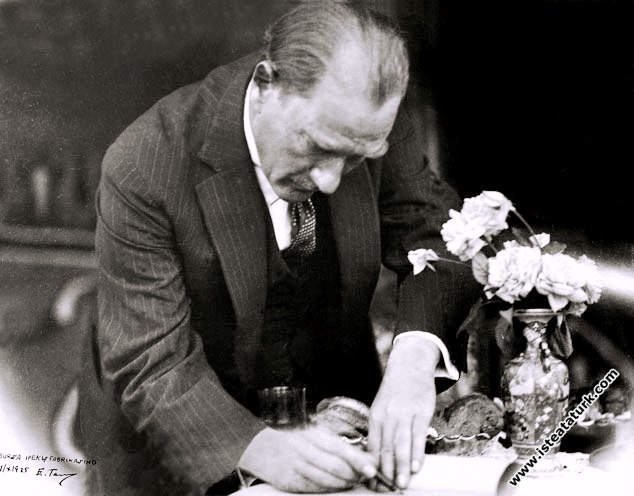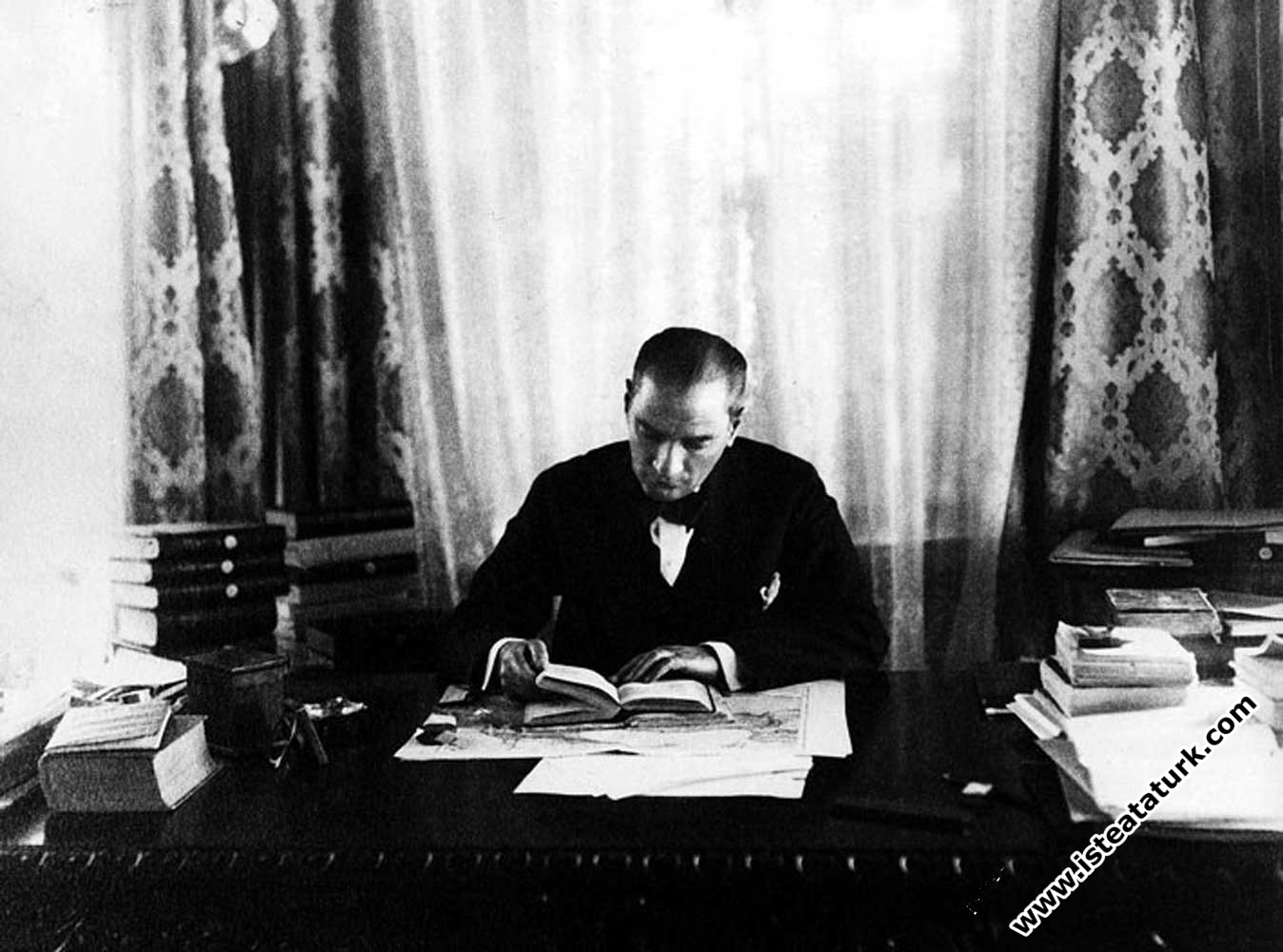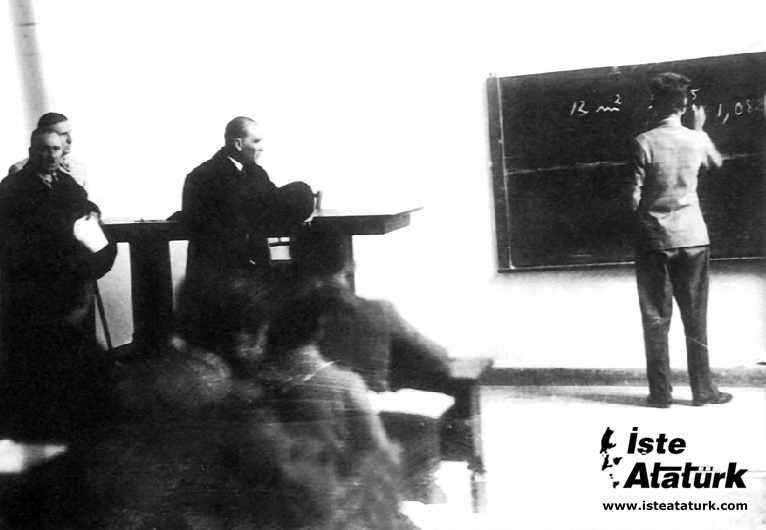
Atatürk's Understanding of Culture and Education
Character Size
"Our true mentor in life is science." Mustafa Kemal Atatürk
ATATÜRK'S APPROACH TO CULTURE AND EDUCATION
While examining Atatürk's social reforms, it is necessary to specify the understanding of culture and education that forms the basis of these reforms. While entering this subject, we find it useful to focus on the traditional culture and education understanding of the Ottoman Empire, first of all. In this regard, we will make a brief summary.
Cultural Duplication in the Ottoman Era
Until the Tanzimat period, the Ottoman order was largely under the influence of Islam. The world view of Islam was dominant in the Ottomans.
After the beginning of the Tanzimat period, it is seen that the pressure of Islam on the Ottoman order eased. However, this easing caused a cultural duplication in Ottoman society with the influence of the West. This cultural dichotomy, which emerged in the social life of the Ottomans, was also reflected in the field of education and settled in the form of madrasah and school duality. Madrasahs remained under the absolute domination of the religion of Islam. There was no room for free thought in them. They had a bigoted look. The basic principle in these was to teach the beliefs and practices of Islam and the principles of Sharia. In Tanzimat schools, which were transferred from the West by imitation, the existence of free thought can only be accepted in a narrow area.
The cultural dichotomy was also reflected in the Ottoman legal order, on the one hand, the rules and institutions of sharia, which we call Islamic law, are in progress. On the one hand, rules and institutions transferred from the West by imitation are at work. The distinction between "material civilization" and "spiritual civilization" put forward by Islamists had an impact on the emergence of this cultural duplication. Islamists claimed that science and technology were "material civilization" and could be transferred to Muslim societies, but "spiritual civilization", that is, law, morality, economy and lifestyles, should be rejected. In the face of this heavy pressure of the Islamists, the Tanzimatists settled in the country and accepted the preservation of non-contemporary rules and institutions as a concession, and on the other hand, they caused the modern rules and institutions to function.
The distinction that Islamists made as "material civilization" and "spiritual civilization" turned into a distinction between "hars" and "civilization" in Gökalp's language after the Second Constitutional Monarchy. According to Gökalp, “hars”, that is, culture, is national and has an unchangeable quality in this respect. However, civilization shows an international character as it includes science and technology. Gökalp is against the change of culture because it is national. It should be contented only with the acquisition of civilization, that is, science and technology, from other countries. According to him, instilling one of the national cultural elements into the culture of another society does not give a positive result.
Atatürk's Understanding of Culture
Atatürk is against Gökalp's distinction between culture and culture. He accepts that such a distinction will stop the modernization of our society. For Atatürk, there is no separation of culture and civilization; Culture and civilization are one. He says the following on this subject: “There are always other people who describe what civilization is. I think it is difficult and unnecessary to separate civilization from hars. To explain this view, let's define what hars means. Hars is the collective result of what human society can do in state life, intellectual life, and economic life. When the civilization of a nation is mentioned, nothing can be thought of other than the three types of activities of human society, which I count under the name of hars, in terms of state, thought and economy”.
As it can be understood from this speech, Atatürk had an understanding of culture that included civilization. If Atatürk had not rejected Gökalp's understanding of culture and civilization, he could not have achieved modernization in areas that Gökalp considered national. Accordingly, transfers could not be made from contemporary countries in the field of law. For, according to Gökalp, the legal order was considered an element of “hars”. In this respect, it was national, and if a revolution were to be made in this area, it would be devastating for the society.
Reforms made before Atatürk's time were under the influence of the distinction between civilization and culture, resulting in only imitation of technology. Since things called "hars" could not be transferred outside of technology, it was impossible to go beyond imitation. However, the main source of contemporary civilization is the worldview, lifestyle and mentality that gave birth to this technology. For this reason, it was impossible for society to change and develop without adopting a modern way of life and having a modern world view.
Atatürk is against all kinds of imitation movements. It is necessary to be creative in order to be modern. This can only be achieved by acquiring the mentality and lifestyle that creates the technology.
Atatürk's not seeing civilization as different from culture in terms of quality and explaining civilization as a special case of culture is a principle accepted by Cultural Anthropology today. Cultural Anthropology, which developed a lot after Atatürk's death, today accepts the principles that Atatürk emphasized in his health as a scientific result.
Atatürk was of the opinion that it was possible to pass from traditional culture to contemporary culture with revolutionary breakthroughs. He accepted that traditional cultural elements would be replaced by new ones. For example, the republic replaced the sultanate and the caliphate, which is the traditional form of government, and a single education, namely national education, prevailed instead of dual culture and dual education. Thus, the obsolete elements of traditional culture were removed and new elements were introduced. These views of Atatürk were accepted as a scientific fact by Cultural Anthropology, which developed a lot after his death.
Atatürk transferred the secularism system in order to replace the sharia order that dominated the traditional Ottoman culture with new elements. As a matter of fact, the Turkish society today is a Muslim society as before, but it has a secular state administration. Atatürk's transition from traditional Ottoman culture to modern culture and the great help of the secularism system in this regard were effective in the change and development of Turkish society. The vast majority of Turkish citizens living in the Republic of Turkey today, like all Muslims in the world, are sincerely devoted to their religion. But these Muslims are secular Muslims in terms of belief and worship. Thus, the Muslim Turks actively established and maintains the secular state.
Atatürk's Understanding of Education
Atatürk's understanding of education is a result of his understanding of cultural change. The fact that education is based on contemporary culture will not violate the principle of nationality in education. The nationalist movement that Atatürk relied on when starting the National War of Independence is not a static movement in this respect. Atatürk's understanding of education is based on this basic principle. Thus, education will gain a national character based on modernization. Religious elements cannot prevent this modernization.
With the secularism movement, Turkish people will believe that they have the power to change the destiny of the society, Islamic culture does not agree with this truth and does not adopt this truth. For him, both nature and society were arranged by God. This order cannot be changed. In this respect, the destiny of society is not people; God appoints. Atatürk's understanding of education aims to make Turkish people dominate the destiny of the society by making an impact on both the natural environment and the social environment, and the human will to prevail in this regard. Under the light of this mentality, Atatürk wanted to modernize the Turkish society with the means of education with revolutionary breakthroughs and struggled in this regard.
There was no change in the madrasahs and foundation schools throughout the Ottoman period until Atatürk came to power. Because these institutions were frozen according to religious principles. In the Tanzimat schools taken from the West, free thought was also included. In this respect, it was necessary to abolish the madrasahs and primary schools that continued under religious pressures under the administration of the foundations, by maintaining the schools taken from the West. However, the different education between the madrasah and foundation schools and the new schools could not be abolished. The result of this has been the growth of generations with different mentalities.
Although Gökalp suggested that the primary schools under the administration of the foundations be supervised by the Ministry of Education and thus proposed a teaching union, the party of Union and Progress, which was in power, did not accept the abolishment of the foundation schools and madrasahs and the unification of education.
After the National War of Independence ended with victories, Atatürk abolished the Ministries of Foundations and Seriye with the "Unity of Education" movement and connected the management and supervision of all schools in the Republic of Turkey to the Ministry of Education. However, after the publication of the Law on the Unification of Education, famous intellectuals made an effort not to close the madrasahs, but only to continue their existence by reforming them. They even wanted the names of these institutions to be changed to "Dominion Milliye" or "Revolution Madrasah". Atatürk rejected these proposals. Thus, educational institutions were saved from being theological institutions. Religion lessons were removed from the high school and secondary school curriculum in 1927. These courses were not included in the Program in order not to teach Arabic and Persian languages, which are eastern languages. There is; Despite the removal of religion lessons from high school and secondary school curricula, religion lessons in village schools were not touched. There was no harm in the continuation of the "Village Primary Schools Curriculum" by respecting the following principles. Religion classes will be shown for one hour per week. In these lessons, the unity of God, the life of our Prophet will be explained depending on historical facts, the basic principles of Islam will be explained as modern moral principles. Among these principles, the following will be included. It will be explained that no one's religion and belief should be interfered with. Hard work will be encouraged. They will be asked to be good people. He will be encouraged to have good dealings with other people. There is; Despite the removal of religion lessons from high school and secondary school curricula, religion lessons in village schools were not touched. There was no harm in the continuation of the "Village Primary Schools Curriculum" by respecting the following principles. Religion classes will be shown for one hour per week. In these lessons, the unity of God, the life of our Prophet will be explained depending on historical facts, the basic principles of Islam will be explained as modern moral principles. Among these principles, the following will be included. It will be explained that no one's religion and belief should be interfered with. Hard work will be encouraged. They will be asked to be good people. He will be encouraged to have good dealings with other people. There is; Despite the removal of religion lessons from high school and secondary school curricula, religion lessons in village schools were not touched. There was no harm in the continuation of the "Village Primary Schools Curriculum" by respecting the following principles. Religion classes will be shown for one hour per week. In these lessons, the unity of God, the life of our Prophet will be explained depending on historical facts, the basic principles of Islam will be explained as modern moral principles. Among these principles, the following will be included. It will be explained that no one's religion and belief should be interfered with. Hard work will be encouraged. They will be asked to be good people. He will be encouraged to have good dealings with other people. Religious lessons in village schools were not touched. There was no harm in the continuation of the "Village Primary Schools Curriculum" by respecting the following principles. Religion classes will be shown for one hour per week. In these lessons, the unity of God, the life of our Prophet will be explained depending on historical facts, the basic principles of Islam will be explained as modern moral principles. Among these principles, the following will be included. It will be explained that no one's religion and belief should be interfered with. Hard work will be encouraged. They will be asked to be good people. He will be encouraged to have good dealings with other people. Religious lessons in village schools were not touched. There was no harm in the continuation of the "Village Primary Schools Curriculum" by respecting the following principles. Religion classes will be shown for one hour per week. In these lessons, the unity of God, the life of our Prophet will be explained depending on historical facts, the basic principles of Islam will be explained as modern moral principles. Among these principles, the following will be included. It will be explained that no one's religion and belief should be interfered with. Hard work will be encouraged. They will be asked to be good people. He will be encouraged to have good dealings with other people. Depending on the historical facts, the life of our Prophet will be explained, the basic principles of Islam will be explained as modern moral principles. Among these principles, the following will be included. It will be explained that no one's religion and belief should be interfered with. Hard work will be encouraged. They will be asked to be good people. He will be encouraged to have good dealings with other people. Depending on the historical facts, the life of our Prophet will be explained, the basic principles of Islam will be explained as modern moral principles. Among these principles, the following will be included. It will be explained that no one's religion and belief should be interfered with. Hard work will be encouraged. They will be asked to be good people. He will be encouraged to have good dealings with other people.
The culture and education understanding of the Atatürk period showed a character that would result in the change, development and thus modernization of Turkish society. However, since the ruling circles that came after Atatürk's death could not protect the Turkish society from religious exploitation, the disease of cultural duplication has emerged again and the danger of war between two opposing generations coming from different sources has emerged.
1 Afet Inan, Memories and Documents About Ataturk, Türkiye İş Bankası Publishing, 1959, p. 267
Ord. Prof. Reşat Kaynar
Source: ATATÜRK ARAŞTIRMA MERKEZİ DERGİSİ, Sayı 6, Cilt: II, Temmuz 1986
